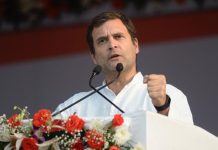
He was the best of editors. He was the worst of editors. He was a man who sometimes knew too much. He was one who mostly knew a little less. He was a reporter’s dream; he would push them to write critical articles on the ruling regimes. He was a journalist’s nightmare, who would nudge his colleagues to run with rumours and half-substantiated news. He was loved and revered by the liberal readers. Hard-core right-wingers hated him.
The late Vinod Mehta, who was one of the iconic editors in Indian journalism, took unusual risks. He loved to take on idols, be it in politics, business, culture or sports. He encouraged his colleagues to do so — and in an irreverent manner. When those who were criticised in his newspapers and magazines complained, he would adorn an impish and mischievous smile, walk up to the reporters and encourage them to do more articles on the same individuals.
Remember the first match-fixing story done by Outlook in June 1997? For the first time, it painted cricketing heroes, such as Indian skipper Mohammed Azharuddin and dashing batsman Ajay Jadeja as vicious villains, who were involved in betting and fixing. Azhar and Jadeja were indicted by the Board of Control for Cricket in India (BCCI) but let off by the courts. Later, in February 2009, when Lalit Modi, the now-discredited head of Indian Premier League (IPL), was at his popularity peak, Outlook exposed his past shenanigans.
There were several pieces in Outlook that rocked the nation during VM’s tenure as Editor-in-Chief. The land scandal that involved the Bollywood star, Amitabh Bachchan. The irregularities in the land bank created by Infosys, the globally-recognised software company managed by Narayana Murthy, who was known for his transparency and integrity. The Scorpene scandal, and revelations that put Madhu Koda, a former chief minister of Jharkhand, behind bars. The rice scam that pointed a finger at Kamal Nath, a former commerce minister.
Unfortunately, it was the same excitement and passion – and sometimes immaturity – that left several scars in VM’s otherwise illustrious career. He recounted one of those incidents in the first volume of his autobiography, Lucknow Boy: “And then I, and I alone, made a terrible, unforgivable error of judgment.” He ran with a malicious story, which had little proof, in The Independent, a jazzy newspaper that he edited.
In 1983, the legendary American journalist, Seymour Hersh revealed that the US had a mole in Indira Gandhi’s cabinet, and he passed on sensitive information related to the 1971 India-Bangladesh war. Hersh said the CIA agent was none other than Morarji Desai, who was the finance minister in 1971. Desai’s loyalists sued Hersh, but lost the libel suit in 1989. Later, the maverick politician, Subramaniam Swamy, alleged that the real mole was YB Chavan, who was the home minister in 1971. “And thereby hangs the tale which caused me much grief and my job,” said VM in his first autobiographical volume.
“I asked our Delhi bureau to check out the new (Swamy’s) revelations. They came back with a copy of the RAW [Research and Analysis Wing, India’s external intelligence agency] letter to Rajiv (Gandhi) and suggested the story had merit. I mistook the RAW letter as the gospel truth. On October 19, we published an eight-column banner headline, ‘Y.B. Chavan, Not Morarji, Spied for the US’.” That proved to be a grave and fatal journalistic blunder.
VM never learnt from that mistake. In Outlook, he continued to repeat them. What he called the pinnacle of his success — the Radia tapes story — was possibly the lowest he stumbled as an editor. The cd with transcripts of conversations that Niira Radia, chief lobbyist for the Tata Group and Reliance Industries (Mukesh Ambani), had with several politicians, bureaucrats and media persons was floating around for months before Outlook published them.
While the transcripts turned out to be authentic, VM ran with them only when he was told a rival weekly newsmagazine, Open, planned to carry them. But Outlook didn’t follow the standard journalistic practices. It didn’t authenticate the tapes; it didn’t speak to any individual whose conversations were recorded. It didn’t attempt to check with the finance ministry’s department that had recorded the conversations. What if the CD was doctored?
March 2001 was another dark month in VM’s editorial career. Outlook published a cover story, “Rigging The PMO: South Bloc”, which alleged that two individuals — Brajesh Mishra, the principal secretary to the PM and NK Singh, the officer on special duty — ran the Atal Bihari Vajpayee government along with a clutch of business houses. “Mishra and Singh constitute the powerful arms of the Prime Minister’s Office (PMO), which has now become the imperial power centre, rising roughshod over the bureaucracy and foisting controversial decisions on various ministries without so much as consulting them,” read its first paragraph.
VM said in Lucknow Boy that the article was based on a briefing given by EAS Sarma, who was secretary, finance ministry, in 1999-2000. But it didn’t have any other evidence. Based largely on unnamed sources and unsubstantiated charges, it quoted a single letter, written by Shyamal Ghosh, the then telecom secretary. Ghosh wrote that the government’s decision to hike FDI (foreign direct investment) limit in the telecom sector was put up before the cabinet without consulting the telecom ministry. “Frankly, this matter has come as a surprise to us,” he wrote to the industries secretary, Piyush Mankad.
The piece got VM, the two reporters and Outlook’s owner, Rajan Raheja, the Mumbai-based businessman with several interests, in trouble. Mishra flew into a rage; the Vajpayee regime conducted extensive income tax raids on Raheja’s corporate empire. Years later, the whispers in the magazine’s corridors was that VM had to personally apologise to Mishra and ask him to go easy on his owner.
In 2012, Ajaz Ashraf, a senior editor who worked with VM from July 2000 till February 2012, wrote a piece in The Hindu, which further maligned his former editor. “In 2005, a year after the ouster of Vajpayee’s National Democratic Alliance from power, journalist Rajesh Ramachandran worked over three months to establish a link between (Ranjan) Bhattacharya (Vajpayee’s foster son-in-law) and the companies to which two (state-owned) Centaur Hotels in Mumbai were sold. The story had been cleared as a cover, but a day before the magazine was to go to the press, it was summarily pulled out. The Editor-in-Chief displayed ample candour in disclosing to senior editors, of whom I was one, that the story had been withdrawn at the proprietor’s behest.” (Outlook’s Saba Naqvi clarified that the magazine did carry a cover on Bhattacharya, but in 2001.)
This contradictory, sometimes split personality, sides of Dr Vinod and Mr Mehta – aka Dr Jekyll and Mr Hyde – surfaced many times within the newsroom. But to be fair to VM, he was more of Dr Vinod, and less of Mr Mehta.













